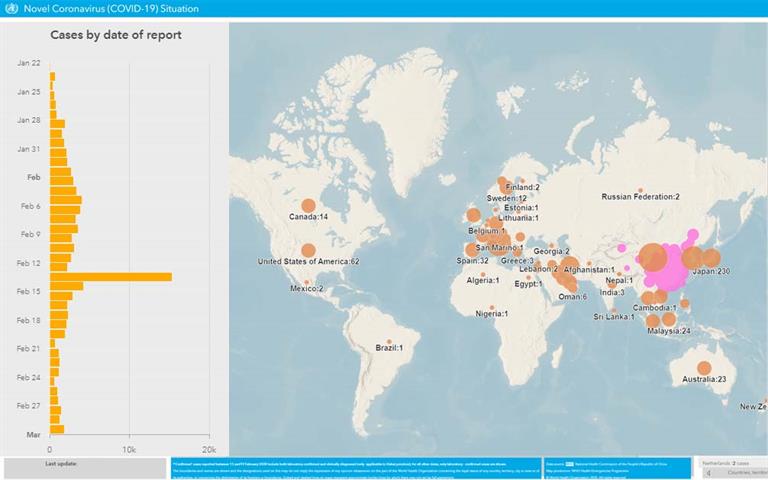-
- Городской центр диагностики и лечения воспалительных заболеваний кишечника (Санкт-Петербург, Россия)
- ГКБ № 31 (Санкт-Петербург, Россия)
Ключевые слова:ВЗК,оптимизация медицинской помощи,специализированные центры,междисциплинарное взаимодействие
Резюме:Оптимальное ведение (лечение и наблюдение) пациентов с болезнью Крона возможно в специализированном подразделении, где медицинские услуги будут предоставляться многопрофильной командой, процесс функционирования которой базируется на современных рекомендациях. Однако не все гастроэнтерологические отделения или кабинеты имеют возможность формирования такого подразделения. В статье представлены результаты проведенного в 2010 году опроса экспертов Российской группы по изучению ВЗК. Только в 6 городах (42,8 %) помощь больным проводилась совместно гастроэнтерологами и колопроктологами. Отсутствие специализирующихся по ВЗК эндоскопистов было отмечено в трех (16,7 %), а морфологов - в 8 (44,4 %) учреждениях. Обеспечение специализирующимися по ВЗК рентгенологами имело место в 39 %, диетологами - 11,1 %, психологами - 39 % учреждений. Обязательное участие фтизиатра входило в программу работы только 9 центров (56 %). Меньше половины (44 %) респондентов указали, что у них есть определенный алгоритм взаимодействия со специализирующимися по вопросам ВЗК детскими гастроэнтерологами и столько же сообщили об имеющихся в центре программах поддержки пациентов, в том числе школы больных. Предложен алгоритм оптимизации специализированной помощи пациентам с ВЗК, осуществляемый путем оказания амбулаторной и стационарной помощи в рамках междисциплинарного взаимодействия специализированных по вопросам ВЗК гастроэнтерологов и колопроктологов.
-
- Molodecky N. A., Soon I. S., Rabi D. M. [et al.] Increasing incidence and prevalence of the inflammatory bowel diseases with time, based on systematic review. Gastroenterology, 2012, vol. 142, № 1, pp. 46-54.
- Schoepfer A. M., Dehlavi M. A., Fournier N. [et al.] Diagnostic delay in Crohn’s disease is associated with a complicated disease course and increased operation rate. Am J Gastroenterol., 2013, vol. 108, № 11, pp. 1744-1753.
- Panés J., O’Connor M., Peyrin-Biroulet L. [et al.] Improving quality of care in inflammatory bowel disease: what changes can be made today? J Crohns Colitis, 2014, vol. 8, № 9, pp. 919-926.
- Mikocka-Walus A.A., Andrews J. M., Bernstein C. N. [et al.] Integrated models of care in managing inflammatory bowel disease: a discussion. Inflamm Bowel Dis., 2012, vol. 18, № 8, pp. 1582-1587.
- Ricci C., Lanzarotto F., Lanzini A. The multidisciplinary team for management of inflammatory bowel diseases. Dig Liver Dis., 2008, vol. 40, Suppl. 2, pp. S 285-S 288.
- Altschuler A., Collins B., Lewis J. D. [et al.] Gastroenterologists’ attitudes and self-reported practices regarding inflammatory bowel disease. Inflamm Bowel Dis., 2008, vol. 14, № 7, pp. 992-999.
- Tan M., Holloway R. H., Lange K. [et al.] General practitioners’ knowledge of and attitudes to inflammatory bowel disease. Intern Med J., 2012, vol. 42, № 7, pp. 801-807.
- Cheung W. Y., Dove J., Lervy B. [et al.] Shared care in gastroenterology: GPs’ views of open access to out-patient follow-up for patients with inflammatory bowel disease. Fam Pract., 2002, vol. 19, № 1, pp. 53-56.
- Kaplan G. G., Seow C. H., Ghosh S. [et al.] Decreasing colectomy rates for ulcerative colitis: a population-based time trend study. Am J Gastroenterol., 2012, vol. 107, № 12, pp. 1879-1887.
- Frolkis A. D., Dykeman J., Negron M. E. [et al.] Risk of surgery for inflammatory bowel diseases has decreased over time: a systematic review and meta-analysis of population-based studies. Gastroenterology, 2013, vol. 145, № 5, pp. 996-1006.
- Calvet X., Panes J., Alfaro N. [et al.] Delphi consensus statement: Quality Indicators for Inflammatory Bowel Disease Comprehensive Care Units. J Crohns Colitis, 2014, vol. 8, № 3, pp. 240-251.
- Kaplan G. G., McCarthy E. P., Ayanian J. Z. [et al.] Impact of hospital volume on postoperative morbidity and mortality following a colectomy for ulcerative colitis. Gastroenterology, 2008, vol. 134, № 3, pp. 680-687.
- Karanicolas P. J., Dubois L., Colquhoun P. H. [et al.] The more the better?: the impact of surgeon and hospital volume on in-hospital mortality following colorectal resection. Ann Surg., 2009, vol. 249, № 6, pp. 954-959.
- Burns E. M., Bottle A., Aylin P. [et al.] Volume analysis of outcome following restorative proctocolectomy. Br J Surg., 2011, vol. 98, № 3, pp. 408-417.
- Nguyen G. C., Steinhart A. H. The impact of surgeon volume on postoperative outcomes after surgery for Crohn’s disease. Inflamm Bowel Dis., 2014, vol. 20, № 2, pp. 301-306.
- Callahan M. A., Christos P. J., Gold H. T. [et al.] Influence of surgical subspecialty training on in-hospital mortality for gastrectomy and colectomy patients. Ann Surg., 2003, vol. 238, № 4, pp. 629-636.
- Papay P., Ignjatovic A., Karmiris K. [et al.] Optimising monitoring in the management of Crohn’s disease: a physician’s perspective. J Crohns Colitis, 2013, vol. 7, № 8, pp. 653-669.
- Eliakim R., Magro F. Imaging techniques in IBD and their role in follow-up and surveillance. Nat Rev Gastroenterol Hepatol., 2014, vol. 11, № 12, pp. 722-736.
- Van Der Eijk I., Verheggen F. W., Russel M. G. [et al.] “Best practice” in inflammatory bowel disease: an international survey and audit. Eur J Intern Med., 2004, vol. 15, № 2, pp. 113-120.
- Magro F., Langner C., Driessen A. [et al.] European consensus on the histopathology of inflammatory bowel disease. J Crohns Colitis, 2013, vol. 7, № 10, pp. 827-851.
- Elkjaer M., Moser G., Reinisch W. [et al.] IBD patients need in health quality of care ECCO consensus. J Crohns Colitis, 2008, vol. 2, № 2. pp. 181-188.
- Jaff J. C., Arnold J., Bousvaros A. Effective advocacy for patients with inflammatory bowel disease: communication with insurance companies, school administrators, employers, and other health care overseers. Inflamm Bowel Dis., 2006, vol.12, № 8, pp. 814-823.
- O’Connor M., Bager P., Duncan J. [et al.] N-ECCO Consensus statements on the European nursing roles in caring for patients with Crohn’s disease or ulcerative colitis. J Crohns Colitis, 2013, vol 7, № 9, pp. 744-764.
- Hernandez-Sampelayo P., Seoane M., Oltra L. [et al.] Contribution of nurses to the quality of care in management of inflammatory bowel disease: a synthesis of the evidence. J Crohns Colitis, 2010, vol 4, № 6, pp. 611-622.
- Guarini A., Marinis F., Kohn A. [et al.] Inflammatory bowel disease nurse specialists for patients on biological therapies: a nationwide Italian survey. Ann Gastroenterol., 2016, vol. 29, № 4, pp. 492-496.
- Kemp K., Fernandez E., Arnott I. Impact of inflammatory bowel disease nurse specialist on quality of the patient journey. J Crohns Colitis, 2013, vol. 7, suppl. 1, p. 203.
- Leach P., De Silva M., Mountifield R. [et al.] The effect of an inflammatory bowel disease nurse position on service delivery. J Crohns Colitis, 2014, vol. 8, № 5, pp. 370-374.
- Pearson C. Establishing an inflammatory bowel disease service. Nurs Times, 2006, vol. 102, № 23, pp. 28-29.
- Nightingale A. J., Middleton W., Middleton S. J. [et al.] Evaluation of the effectiveness of a specialist nurse in the management of inflammatory bowel disease [IBD]. Eur J Gastroenterol Hepatol., 2000, vol. 12, № 9, pp. 967-973.
- Davey Smith G., Watson R., Roger D. [et al.] Impact of a nurse-led counselling service on quality of life in patients with inflammatory bowel disease. J Adv Nurs., 2002, vol. 38, № 2, pp. 152-160.
- Rejler M., Spangeus A., Tholstrup J. [et al.] Improved population-based care: Implementing patient-and demand-directed care for inflammatory bowel disease and evaluating the redesign with a population-based registry. Qual Manag Health Care, 2007, vol. 16, № 1, pp. 38-50.
- Casellas F., Ginard D., Vera I. [et al.] Satisfaction of health care professionals managing patients with inflammatory bowel disease. J Crohns Colitis, 2013, vol. 7, № 7, pp. e249-e255.
- Siegel C. A. Shared decision making in inflammatory bowel disease: helping patients understand the tradeoffs between treatment options. Gut 2012, vol. 61, № 3, pp. 459-465.
- Baars J. E., Markus T., Kuipers E. J. [et al.] Patients’ preferences regarding shared decision-making in the treatment of inflammatory bowel disease: results from a patient-empowerment study. Digestion, 2010, vol. 81, № 2, pp. 113-119.
- Hummel T. Z., Tak E., Maurice-Stam H. [et al.] Psychosocial developmental trajectory of adolescents with inflammatory bowel disease. J Pediatr Gastroenterol Nutr., 2013, vol. 57, № 2, pp. 219-224.
- Goodhand J., Hedin C. R., Croft N. M. [et al.] Adolescents with IBD: the importance of structured transition care. J Crohns Colitis, 2011, vol. 5, № 6, pp. 509-519.
- Selinger C. P., Eaden J., Selby W. [et al.] Inflammatory bowel disease and pregnancy: lack of knowledge is associated with negative views. J Crohns Colitis, 2013, vol. 7, № 6, pp. e206-e213.
- Vavricka S. R., Brun L., Ballabeni P. [et al.] Frequency and risk factors for extraintestinal manifestations in the Swiss inflammatory bowel disease cohort. Am J Gastroenterol., 2011, vol. 106, № 1, pp. 110-119.
- Stolwijk C., Pierik M., Landewe R. [et al.] Prevalence of self-reported spondyloarthritis features in a cohort of patients with inflammatory bowel disease. Can J Gastroenterol., 2013, vol. 27, № 4, pp. 199-205.
- Danese S., Colombel J. F., Reinisch W. [et al.] Review article: infliximab for Crohn’s disease treatment shifting therapeutic strategies after 10 years of clinical experience. Aliment Pharmacol Ther., 2011, vol. 33, № 8, pp. 857-869.
- Melmed G. Y., Siegel C. A., Spiegel B. M. [et al.] Quality indicators for inflammatory bowel disease: development of process and outcome measures. Inflamm Bowel Dis., 2013, vol. 19, № 3, pp. 662-668.
- Wong S., Walker J. R., Carr R. [et al.] The information needs and preferences of persons with longstanding inflammatory bowel disease. Can J Gastroenterol., 2012, vol. 26, № 8, pp. 525-531. Zolnierek K. B., Dimatteo M. R. Physician communication and patient adherence to treatment: a meta-analysis. Med Care, 2009, vol. 47, № 8, pp. 826-834.
- Aguas Peris M., Del Hoyo J., Bebia P. [et al.] Telemedicine in inflammatory bowel disease: opportunities and approaches. Inflamm Bowel Dis. 2015, vol. 21, № 2, pp. 392-399.
Для цитирования :
Щукина О.Б., Григорян В.В. ОРГАНИЗАЦИЯ СПЕЦИАЛИЗИРОВАННЫХ ПОДРАЗДЕЛЕНИЙ - ЦЕНТРОВ ВЗК КАК ПУТЬ ОПТИМИЗАЦИИ МЕДИЦИНСКОЙ ПОМОЩИ ПАЦИЕНТАМ С ЯЗВЕННЫМ КОЛИТОМ И БОЛЕЗНЬЮ КРОНА. Экспериментальная и клиническая гастроэнтерология. 2017;146(10):116-123
Загрузить полный текст
ОГЛАВЛЕНИЯ ВЫПУСКОВ
Контакты
Submission of the manuscript is online via e-mail
ecgarticle@gmail.com or
cholerez@mail.ru
Editorial Correspondence e-mail
gastrossr@gmail.com
Publishing, Subscriptions, Sales and Advertising, Correspondence e-mail
journal@cniig.ru
Tel: +7 917 561 9505
COVID-19



